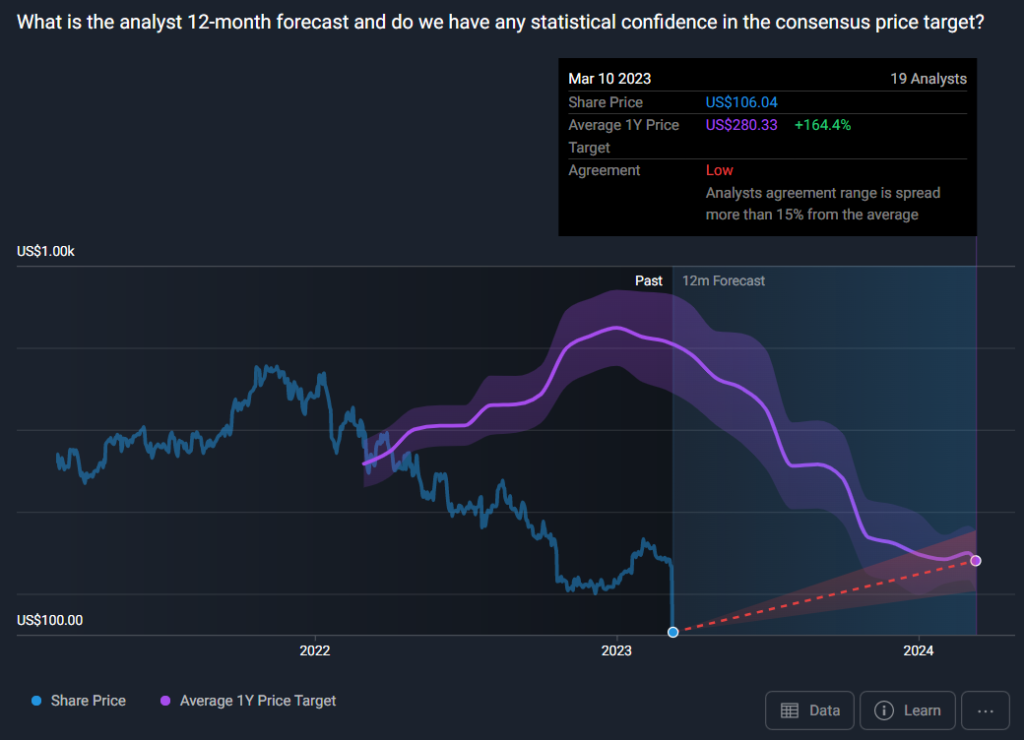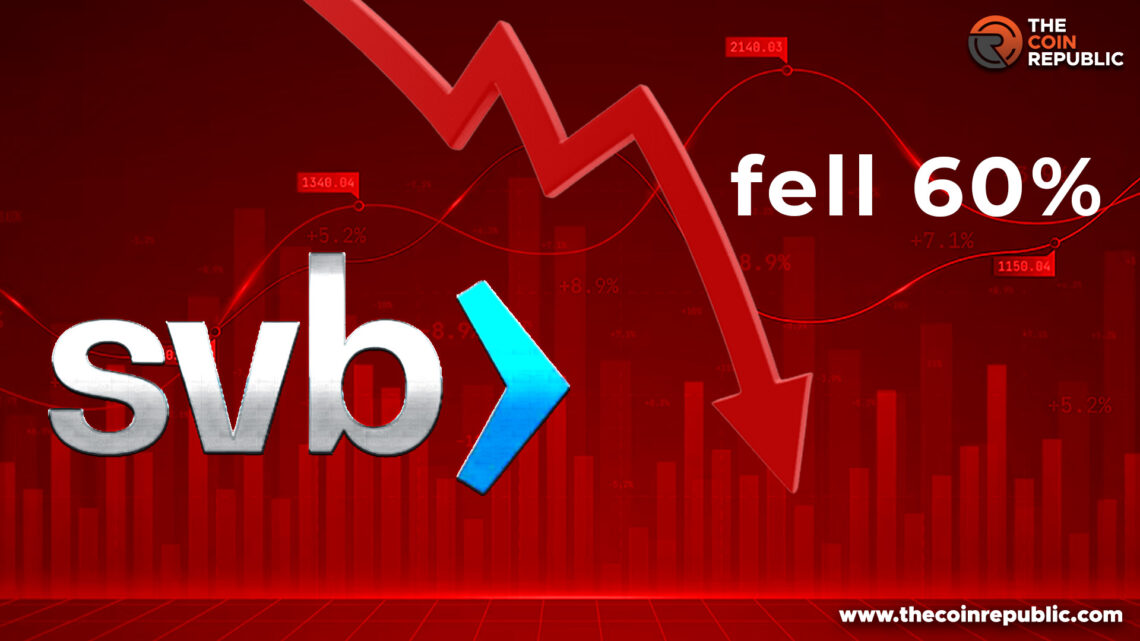- 1 On Thursday, Silicon Valley Bank’s shares dropped by 60%.
- 2 Rising Inflation rates, Fed’s combative measures, and higher interest rates are to be blamed.
Silicon Valley Bank (SIVB) shares crashed by 60% on Thursday. Can it be said that recession is on the horizon? The company recently announced its plans to raise $2 billion-plus in the capital by selling everything possible to help offset its losses on bond sales.
Silicon Valley Bank $SIVB is in trouble.
— Genevieve Roch-Decter, CFA (@GRDecter) March 9, 2023
It sold off a $21 billion bond portfolio for a huge loss to shore up liquidity.
The market is worried and the stock is down 54% today.
Here’s what you should know 🧵 pic.twitter.com/Yw9sSr9Q8l
SVB’s Drawdown – Is Recession Knocking the Door
Silicon Valley Bank reported a major drawdown on Thursday, add date. A possible reason was their decision to sell sellable assets due to a sizable deposit decline. Moreover, Federal Reserve has launched combative measures to fight inflation.
On Thursday date, four of the biggest US banks lost $52 billion in market value. Where JPMorgan lost nearly $22 billion of its market value, Bank of America also lost about $16 billion, Wells Fargo lost $10 billion, and Citigroup amassed a loss of $4 billion.
Federal Deposit Insurance Corp’s study shows that the banking industry is supposed to have about $600 billion of unrealized losses for its securities holdings. This might be due to a scenario where banks stowed away extra cash in bonds at the time of lower rates.
Bond prices have reduced as the government hikes the rates to fight inflation, adding to their losses. However, banks might not have to sell their bonds at a loss until they have a deposits influx. Such a scenario might occur if stock prices get to the floor.
Major financial institutions like Truist Financial, Charles Schwab, Capital One, and JPMorgan have unrealized losses on securities of nearly $10 billion each, which they portray as available for sale, concerning Performance Trust Capital Partners, the one which advises banks on their balance sheet strategies.
Following the suit, PacWest Bancorp corrected by 25%, First Republic Bank suffered a 17% loss, Charles Schwab Corp dropped by 13%, and US Bancorp lost 7%.
Fed Fighting Inflation
The Federal Reserve is trying to fight an uphill battle in controlling the rising inflation rates and is supposedly viewing recession over the horizon. The current inflation rate is 6.41%, 6.45% last month, and 7.48% last year. It is very high from the long-term average of 3.28%.
The subsequent rise in interest rates has lowered the value of existing bonds with lower payouts. Banks usually own a considerable portion of these bonds, thus intensifying the situation for banks.
Silicon Valley Bank (SIVB) – Financial Analysis
When writing, SIVB was trading at $106.04, with a drop of 60.41%. Previous close and open were at $276.83 and $176.55, respectively. The fifty-two-week change was negative, 49.52%. The market cap dropped to $6.278 billion. Revenue was at $1.39 billion with a drop of 4.48%, and operating expense raised by 13.84% to $979 million.

Net income dropped by 20.05% to $315 million; EPS was $4.62 with a correction of 25.72%. The average 1-year target is $280.33, with a 164.4% upside. The last earnings were reported on January 19, 2023, with a revenue of $1.442 billion, which was 2.42% more than the expected revenue.
Disclaimer
The views and opinions stated by the author, or any people named in this article, are for informational purposes only and do not establish financial, investment, or other advice. Investing in or trading crypto assets comes with a risk of financial loss.

Andrew is a blockchain developer who developed his interest in cryptocurrencies while pursuing his post-graduation major in blockchain development. He is a keen observer of details and shares his passion for writing, along with coding. His backend knowledge about blockchain helps him give a unique perspective to his writing skills, and a reliable craft at explaining the concepts such as blockchain programming, languages and token minting. He also frequently shares technical details and performance indicators of ICOs and IDOs.


 Home
Home News
News






